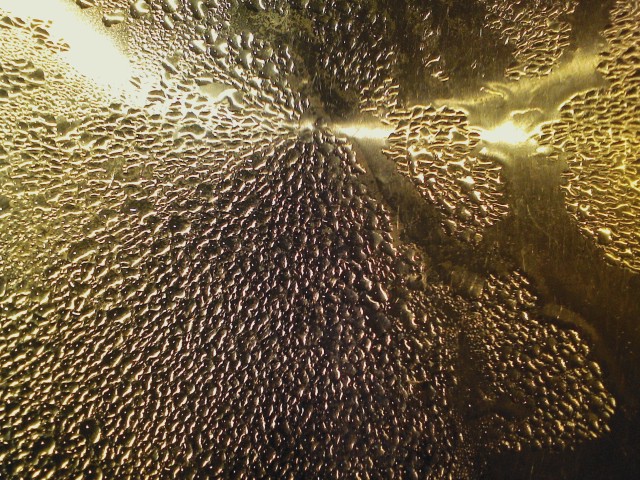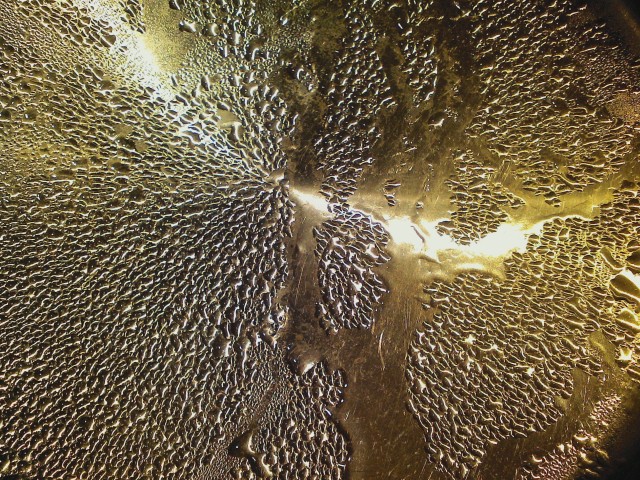Tuesday, January 9, 2018 – Robert Mezey and Dick Barnes

A LAKE ON THE EARTH / A WORD LIKE FIRE
I’ve been keyboarding material in a pamphlet I issued back in late 1982 that served as a catalogue for Momentum Press. I wanted to do a mailing to libraries in hopes of generating more book orders, since surprisingly few libraries were ordering volumes of poetry that certainly deserved a place on the shelf next to the ones that were winning the big book prizes. Indeed, one of the books I had published in 1980 had landed on a list of five finalists for the best book of poetry published that year. I have no doubt that the editors and publicist at Knopf had never heard of Leland Hickman’s Great Slave Lake Suite until the day that title appeared in the finalist list. Many of the other titles I published deserved equal attention, and some had received resoundingly respectful notices. There were enough such reviews, in fact, that I felt I might improve sales if I put together an overview of the press up to that point. About two years earlier, I had done a joint catalogue with Dennis Koran’s Panjandrum Press and Mudborn Press (edited by Judyl Mudfoot and Sasha Newborn) in Santa Barbara, and that had generated some sales, so it made sense to try it again. (Unfortunately, the recession of Reagan’s first term of office had a devastating effect on small presses and bookstores, and Momentum Press never recovered.) In creating computer files of excerpts from two dozen reviews of Momentum Press books the past couple days, I have once again realized how fortunate I was to have so many talented poets entrust me with their work.
Indeed, it is only in recent years that I have fully appreciated what a large percentage of the writers, whose debuts I gave precedence to, proved to be individuals possessing an enduring and substantial talent. The number of novels or books of poems produced since the late 1970s and early eighties by Jim Krusoe, Alicia Ostriker, Kate Braverman, Holly Prado, James Grabill, Jim Moore, and Michael C. Ford far outpaces the production of most authors associated with typical small press of that period. Equally unusual are the instances in which the poets I published achieved some measure of posthumous recognition; Leland Hickman and Dick Barnes most certainly fit that category. Lee Hickman was on the verge of being forgotten as a poet, until I nominated him to Stephen Motika at Poets House in NYC. Stephen’s Nightboat Books collaborated with Seismiscity Editons at the Otis College of Art and Design to published TIRESIAS: The Collected Poems of Leland Hickman at the end of the past decade.
Today, though, I want to point to another poet whose work received some glowing reviews, but only after he died. I hope I don’t end up sounding too aggrieved at this development, but I must admit that it was difficult to repress an internal rant about the tardy praise for Dick Barnes’s poetry that I read online yesterday in venues such as Ploughshares, New Yorker, and the Library of America blog. Donald Hall and Tom Sleigh are full of praise for Dick Barnes in the 21st century, but where were they when I published A Lake on the Earth in 1982? If anyone deserved more attention at that point, it was Dick Barnes, but he was one of the most modest men I ever met, and modesty has rarely helped anyone achieve immodest literary stature.
Is there a lesson for young writers in the survival of Barnes’s poetry? Well, it might be a good idea to find a friend who respects and cares enough about your work to keep speaking up for it. If it weren’t for Robert Mezey, in fact, Dick Barnes would not be visible at all right now, except in the backlist of Momentum Press and a few other even more underground projects. Here are the links to the notices on Barnes’s A Word Like Fire, which was edited by his good friend – and most extraordinary poet himself – Robert Mezey. Let me pause and say it here, since I don’t see it said often enough in places that should know better: Mezey is among the dozen or so poets in the past half-century who have written truly memorable poems. I first heard him read at San Diego State in the spring of 1968, and he has remained a model of devotion to poetry as the supreme art of the imagination ever since. In the course of speaking up for other poets, both as an editor and translator, he has not surprisingly been neglected in terms of appropriate honors for his own poetry. If anyone deserves the George Drury Smith Award, for instance, it is Robert Mezey, but I fear that reading is mainly fashion these days. That Mezey reads and speaks up when the work merits praise, regardless of the writer’s so-called reputation, is one of the traits that Mezey shared with his former colleague at Fresno State, Philip Levine. While Levine is certainly one of the most prominent figures in American poetry, it is Mezey I find myself thinking more of these days, and wishing that I could have studied with him. Indeed, at the very least, I wish I could find the money to have him come and give a reading at CSU Long Beach.
By the way, there are two poets the equal of Dick Barnes who are missing from the list I posted the other day. I know of two other poets who are long-time friends of these two missing poets who would spot each absence right away. I doubt, however, there is anyone who can name them both. And so it goes….
https://www.newyorker.com/magazine/2005/08/29/a-word-like-fire-selected-poems
https://www.pshares.org/issues/spring-2005/word-fire-dick-barnes
http://blog.loa.org/2011/10/tom-sleigh-on-dick-barness-word-like.html
Finally, I wish to note that on the Amazon company’s page on which A Word Like Fire is advertised as still available, one can read the comment to the effect that all future anthologies should contain Barnes’s poems. Apparently, no one takes this kind of pronouncement seriously, since as far as I know only Suzanne Lummis, Robert Mezey and myself have included Dick Barnes in their anthologies. Odd, isn’t it, that all three of us live in Southern California, supposedly a place with little capacity for literary discrimination?

 About Bill Mohr
About Bill Mohr